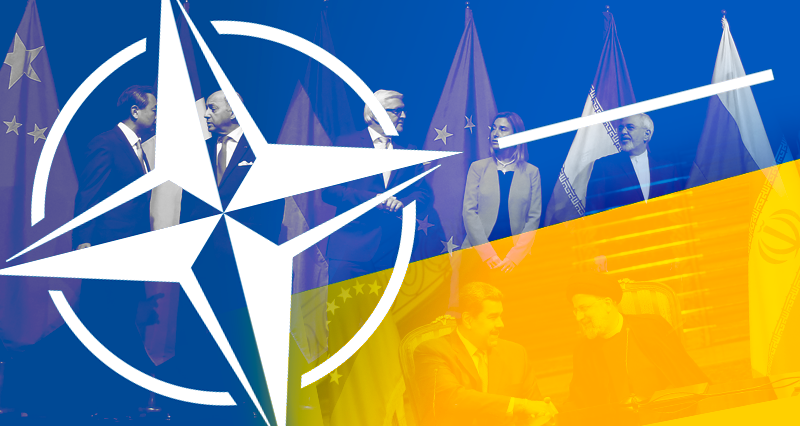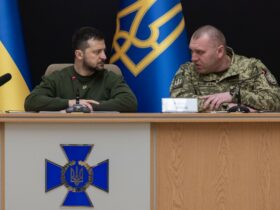Experience has taught me that not all politicians can become statesmen. There is a difference between the two. Basically, the difference consists in the ability that some people develop to manage and lead a country “through thick and thin.” Within this framework, there are two areas that forge the conditions that make it possible to transform any politician into a statesman: security and defense: In general, the management and direction of the armed forces and the guidance of foreign policy.
In the past, foreign relations were handled unequivocally through the foreign ministries using the art of diplomacy. This function has lost strength and validity in recent times when technology allows heads of state to communicate directly and almost safely without the issues being discussed and processed through the ministries of foreign affairs and embassies and without the need for a direct face-to-face meeting, which meant huge expenses and a lot of useful time lost during travel. This, above all, is more valid when it comes to the links between friendly countries.
But when mutual discussion emanates from different perspectives from the point of view of the philosophical, political, cultural foundations and, in general, of the national interests of each country, the personal contact and direct imprint provided by the leaders play a fundamental role in decision-making and in the signing of agreements.
Diplomacy is the art of subtle deception and the natural hypocrisy of those who often have to pretend an absent friendship when seeking information and making cooperation plans that contribute to the defense, development and maintenance of the political project of the country that is represented. Beyond the fact that mediocre countries resort to the banality of diplomatic representatives who, in the performance of their functions, do not aim at the set objectives, but at the trivial, superficial, puerile and insignificant, diplomacy continues to be a valid instrument to achieve strategic objectives of the State.
In this area, the role of leaders is transcendental. Until now, universally recognized values such as honor, trust, dignity, respect and honesty, among others, were put on the table to deal with agreements and differences. But the very crisis of the international system emanating from the global capitalist society – which, among other things, has a profound ethical character – has begun to make such values hardly credible. On the contrary, it tries to minimize the role of diplomacy to reinforce the instrument of force as a mechanism for imposing and exacerbating the interests of powerful countries to the detriment of world peace, governability and the search for agreements that solve major problems that afflict humanity.
Minsk Agreement served “to buy some time for Ukraine”
The foregoing has become evident after the statements of the former German Federal Chancellor Angela Merkel, who announced that the Minsk Agreements of 2014 were an attempt to give Ukraine time, so that this country could strengthen itself to serve as a battering ram of NATO against Russia. Merkel stated: “We all knew that it was a frozen conflict, that the problem was not resolved, but it was precisely this that gave Ukraine precious time.” That is, the West did not use diplomacy for peace, but for war.
These approaches were endorsed by the former French president François Hollande: “Yes, Angela Merkel is right on this point.” Hollande stated that in fact, today’s Ukrainian army is better trained and insured from a material point of view, which was “a merit of the Minsk Agreements that provided the Ukrainian army this opportunity”.
Such confessions provoked innumerable comments… and also silences. In Europe itself, the Serbian president, Aleksandar Vucic, stated that these statements radically changed the picture of events [in relation to Ukraine] and raised the question of trust. He added that for him this was a sign that he should not trust.
Vucic is the leader of a country seceded by the direct action of NATO, which found no better way than to invent a country to obtain a territory that he wanted to have under control in the Balkans. Faced with this situation, it was inevitable that the Serbian foreign minister established a clear similarity between the Minsk agreements and the Brussels treaties that established the way of relating between Serbia and the so-called republic of Kosovo, which according to him, “have turned out to be fraudulent”.
For his part, the former Austrian vice-chancellor, Heinz-Christian Strache, stated that the confessions of Merkel and Hollande cast doubt on the word of European politicians. Strache, an Austrian far-right politician, said the frankness with which Merkel spoke about the issue was frightening, adding that “in such a way, European leaders are only destroying any foundation to trust them.”
Notwithstanding this, and despite all these certainties, the UN, which under Guterres’s mandate has become an appendage to the policies of the United States, Europe and NATO – as was to be expected – appealed for silence. The secretary general’s spokesman, Stéphane Dujarric, with the brazen argument that this should be left to “historical analysis to journalists, former officials and historians”, did not want to comment on the statements by Merkel and Hollande, giving more force to the idea of that the UN today has a secretary general for war, not for peace.
JCPOA – another example of untrusted US diplomacy
Take the nuclear agreement with Iran known as the Joint Comprehensive Plan of Action (JCPOA). Joe Biden, during his election campaign, promised to rejoin it, which had been signed by Obama and abandoned by Trump. This matter needs to be considered in the same context. Biden appointed Robert Malley as special envoy to Iran to oversee negotiations leading to renewing the JCPOA. However, Malley did the complete opposite.
The Brazilian journalist and geopolitical analyst specialized in Western and Central Asia, Pepe Escobar, assured that the JCPOA “was essentially a clone of the Minsk agreement” so that Washington was buying time to reconfigure its policy towards Iran and Western Asia. Escobar says: “Tehran never fell into the trap” since the Iranian leader, Ayatollah Seyyed Ali Khamenei, whom he describes as “an intelligent geopolitical strategist”, was always clear that he should never trust the United States United because “he intuitively knew that whoever succeeded Obama – the hawkish Hillary or, as it happened, Trump – in the end would not respect what was signed and ratified by the United Nations.”
Such a practice that, as can be seen, has become habitual in the foreign policy of the United States, is now gaining a presence in Venezuela and the negotiations that have been carried out in Mexico between the government and the terrorist sector of the opposition supported by Washington. To this extent, Venezuela should take note of what happened because in reality such meetings are the expression of an indirect negotiation between the governments of Caracas and Washington, managed in this way by the latter because it has not found a way to justify to its public opinion that its policy to overthrow President Maduro failed miserably and now he must negotiate with who really holds the reins of power in the country.
Venezuela’s negotiations in Mexico: Serving Washington to get time in order to present unified opposition in 2024 elections
To do this, it uses the most retrograde, violent and undemocratic sector of the Venezuelan opposition while, simultaneously, it has made use of all the resources and instruments it has in its arsenal. The last of these was to eliminate the “interim government” while keeping the “interim parliament”, both unconstitutional and non-existent in practice. In fact, what occurred is a change in the conduct of the leadership of the criminal gang, while maintaining the practice of the offense under another figure. This decision found an echo in the majority of the terrorist sector, especially because Guaidó did not make an efficient and equitable distribution of the resources obtained from the robbery.
However, Washington continues to “demand” that the talks in Mexico continue. Blind, deaf and dumb because they do not have an embassy in Caracas, they cling to the only thing they have to “maintain” their political presence in Venezuela. All this occurs when the coercive measures adopted against Russia have been reversed and have generated a true economic disaster for them and their allies. Nor can they explain to their public opinion why they have been forced to give in and accept that a US oil company begins to operate in Venezuela.
That is why they insist that their pawns maintain the farce of Mexico. It is the United States that can enforce the agreement to disburse the kidnapped 3.2 billion dollars, not the terrorist opposition. However, the latters were the ones who negotiated it. But no, as in Minsk, in Brussels and in the case of the JCPOA, it has been evident that Washington is buying time while they achieve what is now their objective after the failure of the file on violence and terrorism: to try to unify the opposition, with cash in hand, to go to the 2024 elections with a single candidate.
The patience of Venezuelans is running out. They are not going to wait six or three years when Biden is no longer in charge of the administration, so that he can confess (like Merkel and Hollande with respect to Minsk) that he was only buying time şn Mexico. It is not necessary to wait to know that the senile Biden, like all the presidents of the United States, is a liar. It is known that the diplomacy of the United States is not based on values or principles, but only on imposition and force. Venezuela, its people and its government already know them, they have learned and they will know how to act.

















Leave a Reply